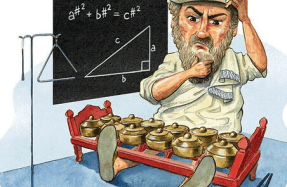Opera returns home

‘‘None of us has actually sat in a 17th-century Venetian theatre that Monteverdi would have composed for”
One of the most important moments in musical history came in the early 17th century, when the world’s very first opera house opened in Venice. The recently invented art form had previously been presented at the palaces of Italian nobles as private, invitation-only affairs; now it was open to a paying public. Not far from the Rialto Bridge, and named after a nearby church, the Teatro San Cassiano was originally built in 1581 to stage plays. With the first performance there of L’Andromeda by Francesco Manelli and Benedetto Ferrari at the carnival in February 1637, its programming model changed – and the modern operatic public was born.
By the end of the 1600s, several other theatres in Venice were staging opera, though the San Cassiano kept its position within a burgeoning industry until the end of the 18th century. It was finally demolished in
You’re reading a preview, subscribe to read more.
Start your free 30 days



